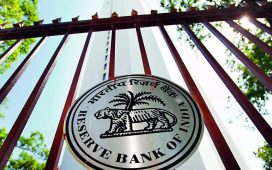Global consumer research firm Kantar‘s latest report showed consumers in the south spent the highest on FMCG products, with an additional ₹2,261 spent per person on an average in 2023, compared with 2022. It also said the total number of shopping trips nearly doubled in 2023 from the previous year, with an exponential 185% growth in FMCG pack purchases.
The data is for Andhra Pradesh, Karnataka, Kerala, Tamil Nadu and Telangana.
“This uptake in purchase signifies increased purchasing power and consumer confidence in the region, driving demand across various FMCG categories,” the report said.
Companies said demand has improved for the entire country too, since January-March. The Retailers’ Association of India (RAI) reported growth rates in the west and north matching that of the peninsula only in April, with the south being India’s best-performing region in the past 12-15 months.

Better Than India Growth
RAI tracks retail-level sales growth across categories every month. In April, retailers in the south expanded sales 5% year-on-year against a 4% pan-India growth rate. In December, there was 7% growth in the south compared with 4% pan-India, RAI data showed.
RAI chief executive Kumar Rajagopalan said the peninsular region is reporting better growth even for discretionary categories due to a far higher younger population and high disposable incomes. For FMCG, the growth is expected to be better as supermarket penetration is twice the rate of the rest of the country and this ensures higher shelf space for all categories of new products, he said.
Fat Pay Cheques
Chief executives said the southern recovery has been faster due to far greater concentration of new-age sectors such as startups and tech companies, which employ a young workforce that can easily afford higher discretionary expenditure.
Manufacturing investment too has been robust, while remittances from overseas have bounced back after the pandemic in states such as Kerala.
Marico chief executive Saugata Gupta told ET the south might be expanding faster due to more urban centres. The FMCG industry’s growth rate has been led by urban markets for five quarters till last calendar year, while rural growth became higher only in January-March. “This fiscal, the north will pick up in tandem with the rural sales recovery that has started. Growth rate in the east is low, while the west has become saturated,” he said.
Companies such as Dabur and Adani Wilmar told analysts in earnings calls earlier this month that the south is a focus market. ITC is piloting most of its new packaged food product launches there, while Hindustan Unilever said in a recent earnings call that it is undertaking the pilot for Boost Ready to Drink.
Dabur India chief executive Mohit Malhotra earlier said per capita income is expanding faster in the south and people prefer more functional products there, leading to better growth.
Shrikant Kanhere, chief financial officer at the country’s largest edible oil company, Adani Wilmar, also said the south is a “very remunerative market,” where the company is launching market-specific campaigns.
According to CMS Info Systems, Karnataka saw the highest annual average withdrawal of Rs 1.83 crore per cash-dispensing machine during FY24.
CMS, which caters to every second ATM and every third organised retail outlet in India for cash management, published its latest consumption report last month.
In fact, Karnataka and Tamil Nadu figured amongst the top five consumption hotspots in India last fiscal, along with Delhi, Uttar Pradesh and West Bengal, the report noted.











